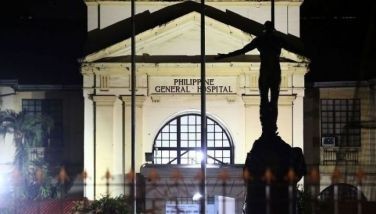EDITORIAL – Power unleashed
August 6, 2005 | 12:00am
 War is hell, and nothing brought home that fact more dramatically than when the power of nuclear fission was unleashed on the city of Hiroshima 60 years ago today. On that day at 8:16 a.m., the B-29 superfortress Enola Gay dropped a four-and-a-half ton uranium bomb nicknamed "Little Boy" over the Japanese city. The bomb killed 66,000 people instantly, with some vaporized all that was left of them was an eerie shadow imprinted in concrete.
War is hell, and nothing brought home that fact more dramatically than when the power of nuclear fission was unleashed on the city of Hiroshima 60 years ago today. On that day at 8:16 a.m., the B-29 superfortress Enola Gay dropped a four-and-a-half ton uranium bomb nicknamed "Little Boy" over the Japanese city. The bomb killed 66,000 people instantly, with some vaporized all that was left of them was an eerie shadow imprinted in concrete.
The death toll rose quickly to 140,000; thousands more would die in the coming years from radioactive fallout and diseases such as leukemia. Radiation sickness would be passed on by survivors to their children.
Three days later the plutonium bomb "Fat Man" was dropped by parachute on Nagasaki, leaving 70,000 dead. Within a week Japanese Emperor Hirohito, regarded as divine by his subjects, announced that his country would surrender. On Sept. 2, the Japanese signed the terms of unconditional surrender on the US battleship Missouri in Tokyo Bay, ending the war in the Pacific.
Physicists noted that the two atomic bombs had utilized only a tenth of one percent of their explosive power. Seeing the horrific destruction caused by nuclear fission, some of the scientists who had developed the bomb had opposed its use as a weapon. But Pandora’s box had been opened, and there was no way to shove back the deadly uses of nuclear power.
The atomic bomb put a decisive end to a world war that left up to 50 million dead. But the power unleashed in Hiroshima and Nagasaki also triggered an arms race that marked the Cold War and threatened the world for the next four decades. Now the Cold War is over and only one superpower is left, but the nuclear threat remains, with rogue states moving to develop their own weapons of mass destruction. A new threat to the free world has emerged, deadly and eager to get its hands on a nuclear weapon. The memory of the devastation in Hiroshima and Nagasaki should increase the world’s resolve to stop the use of nuclear weapons by any nation or group.
BrandSpace Articles
<
>
- Latest
- Trending
Trending
Latest
Recommended

March 28, 2025 - 12:00am

























